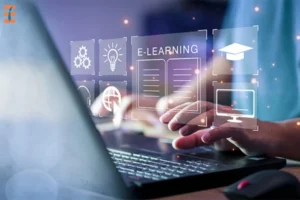In a bid to foster digital literacy and prepare students for a tech-driven future, Nigeria has begun pushing forward initiatives that introduce programming and algorithmic thinking to secondary school students. One of the most notable efforts in this space is the NaijaCoder pilot program, which is pioneering early access to computer science education for high school learners across select states.
This development forms part of Nigeria’s broader strategy to build a future-ready workforce equipped with technical and digital competencies from an early age. As digital skills become increasingly essential across all sectors, such grassroots interventions mark a crucial step toward closing the national digital divide.

NaijaCoder: Teaching Algorithms and Code in Classrooms
NaijaCoder, an educational nonprofit, has taken the lead in introducing coding and algorithmic problem-solving into Nigerian high schools. Its pilot programs are designed to offer hands-on training in key computer science concepts such as:
-
Logic and algorithm development
-
Python programming basics
-
Computational problem-solving
-
Competitive coding techniques
The initiative delivers training through summer boot camps and in-school workshops, focusing on underserved communities. The content is tailored to align with international standards, ensuring that Nigerian students gain skills comparable to their peers globally.
Empowering Students Through Digital Tools
By demystifying complex subjects like programming and algorithms, initiatives like NaijaCoder aim to ignite early interest in tech careers. Students participating in the pilot have reported increased confidence in handling computer science tasks, improved logical reasoning, and a broader understanding of technology’s relevance to their daily lives.
Teachers are also being trained alongside students to enable long-term integration of digital subjects into school curricula. The broader vision includes equipping schools with basic digital infrastructure and building a self-sustaining pipeline of computer science educators.
Part of a Larger Digital Transformation Agenda
NaijaCoder is not operating in isolation. Its work complements federal and state government efforts to modernize Nigeria’s education system through the integration of digital learning tools. This includes initiatives like:
-
Distribution of tablets and laptops to students
-
Partnerships with edtech companies
-
Deployment of smart classrooms
-
Curriculum reviews to include digital skill sets
Furthermore, Nigeria’s Ministry of Education has acknowledged the importance of computer science in secondary education, proposing curriculum upgrades and private sector collaboration to scale up such innovations nationwide.
Challenges and the Road Ahead
Despite the positive momentum, several challenges threaten the sustainability of early digital learning programs. These include:
-
Limited internet connectivity in rural areas
-
Shortage of trained ICT teachers
-
Inconsistent electricity supply
-
Inadequate funding for digital infrastructure
To fully realize the potential of initiatives like NaijaCoder, government support must go beyond policy pronouncements to active investment in digital tools, training, and nationwide adoption. Engaging corporate sponsors and international development partners will also be key in scaling efforts to reach millions of Nigerian students.
Conclusion: Planting the Seeds of a Digital Future
The introduction of early programming and algorithm education marks a progressive shift in Nigeria’s approach to learning. By targeting high schoolers with technical training, initiatives like NaijaCoder are helping to cultivate the next generation of developers, engineers, and problem-solvers.
As Nigeria aspires to compete in the global digital economy, such early-stage interventions will serve as a cornerstone for building inclusive, technology-driven education and empowering young Nigerians with the skills they need to thrive in a modern world.





